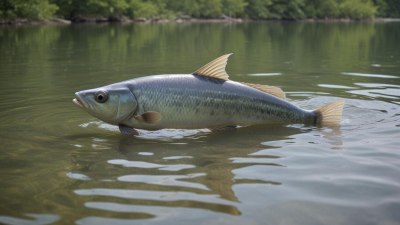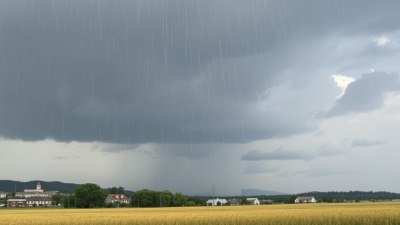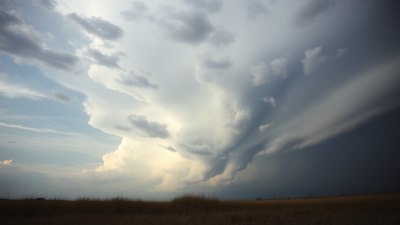Why Everyone Instantly Turns into a Marine Biologist When They See a Fish in the Lake
Explore the humorous phenomenon where every lake visitor becomes an amateur marine biologist upon seeing fish.

This image was created with the assistance of Freepik
Have you ever been near a lake, enjoying the natural beauty, when you suddenly spot a fish swimming lazily near the surface? It seems like that moment instantly transforms everyone around into an amateur marine biologist, eagerly pointing, discussing, and theorizing about the aquatic life they’ve just spotted. This amusing tendency brings together individuals, regardless of their expertise, to share their insights and observations. But why does this happen? In this article, we’ll explore the reasons behind this phenomenon in detail.
The Instant Curiosity Trigger
One reason people rapidly morph into marine biologists at the sight of a fish is the instant surge of curiosity. Humans have an innate desire to understand the world around them, and seeing a fish can spark interest in how it behaves, what it eats, or where it comes from. This curiosity often leads to a flurry of activity—people lean closer, point excitedly, and may even start guessing the fish’s species. Many lakes are home to a variety of fish, and this diversity only fuels the discussions, as onlookers passionately debate which fish they’ve encountered.
The Allure of Nature
Another factor in this transformation is the undeniable allure of nature. Lakes provide a soothing escape from the hustle and bustle of modern life. The tranquility of water combined with the beauty of fish draws people into a state of wonder. Since fish are often elusive, spotting one can feel like a small victory, igniting enthusiasm that leads individuals to talk about the fish as if they were seasoned experts. This connection to nature compels many to express their feelings, and the enthusiasm spreads among those present.
Social Engagement and Connection
Social dynamics play a significant role in why people become 'marine biologists' when they see fish. Groups tend to engage in conversations around shared interests, and fish sightings can serve as a catalyst for social interaction. As one person starts commenting about the fish, others inevitably join in, sharing their own thoughts and experiences. It’s a shared moment of joy and amazement that often fosters relationships, new connections, and even friendly debates about fishing regulations, species preservation, or local fishing spots.
Childhood Memories and Nostalgia
Nostalgia often reminisces through the lens of children’s experiences with nature. Many people have fond childhood memories of going fishing, visiting aquariums, or learning about marine life in school. Seeing a fish in a lake can trigger these memories, prompting individuals to reminisce about past adventures. This nostalgia can lead to exuberant discussions as they recall stories or experiences from their childhood. Sharing these memories adds depth and context to their current fascination with the fish, bringing different generations together through storytelling.
Amateur Expertise
In today’s age, information is readily accessible, giving rise to a wave of amateur experts. Many people engage in hobbies that involve learning about fish, such as fishing, snorkeling, or scuba diving. Even though they may not have formal education in marine biology, they often arm themselves with knowledge acquired through books, online resources, and personal experiences. When they see fish, they draw upon this wealth of information, sharing it with others. This sense of amateur expertise cultivates a warm and welcoming environment, propelling others to join in and contribute their thoughts.
Importance of Education
Another reason behind this phenomenon is the heightened consciousness regarding environmental conservation and education surrounding aquatic ecosystems. Over the years, significant efforts have been made to increase awareness about preserving natural habitats and the vital role that fish play within these ecosystems. When people see fish in lakes, they are often reminded of these educational initiatives and the importance of protecting aquatic life. Discussions tend to touch on conservation efforts and sustainable practices, demonstrating a collective understanding of the significance of maintaining healthy ecosystems.
Interaction with Local Culture
Cultures around the world have unique relationships with water and fish. Many communities have deep-rooted traditions tied to fishing, whether for sustenance or recreation. When individuals encounter a fish, they may reflect on local customs or folklore related to fishing. This cultural lens encourages dialogue, as observers may share stories about fishing traditions, influence of fish in local cuisine, or regional beliefs about aquatic life. Such exchanges enrich the experience and elevate the importance of acknowledging shared cultural histories.
Encouraging Conservation Efforts
Today, with increasing awareness of aquatic threats, many people feel a sense of responsibility when it comes to protecting wildlife. Spotting a fish can be a reminder of the delicate balance in ecosystems and the need for active conservation efforts. Engaging in conversations about fish can lead to greater understanding and motivation to protect marine environments. As people share their thoughts, they inspire not only themselves but also others to reflect on their role in preserving nature and promote sustainable practices.
The Joy of Discovery
It’s hard to deny the excitement of discovery. That moment when you catch sight of a fish can invoke feelings of wonder and awe as people are drawn to these marvelous creatures. Fish have unique behaviors, colors, and characteristics that often surprise observers and spark delightful questions, such as, “What type of fish is that?” or “How fast can it swim?”. This enthusiasm can manifest as animated discussions around features of the fish, educational opportunities, or personal stories. This shared joy transforms an ordinary moment into an extraordinary one, creating a community around appreciation for discovery.
Harnessing Technology
The digital age allows for even more engagement when encountering fish in lakes. With smartphones in hand, individuals can record videos or take pictures, sparking discussions on social media. People may seek assistance in identifying a fish species or sharing their experiences online, further amplifying their enthusiasm. This connectivity has allowed for the creation of online platforms dedicated to fish identification and study, bridging the gap between diverse groups of people who share an interest in marine life.
Ultimately, the transformation into a marine biologist upon seeing a fish is a multifaceted phenomenon shaped by curiosity, nostalgia, social dynamics, and cultural inspirations. These interactions instill a sense of belonging, encourage conservation efforts, and deepen our appreciation for the natural world. The next time you find yourself at a lake and spot a fish, take a moment to observe how others around you react. You may notice the magical essence of nature uniting everyone in a shared passion for understanding aquatic life—a phenomenon worth celebrating. So let’s embrace our inner marine biologist, even if it’s just for a moment.











